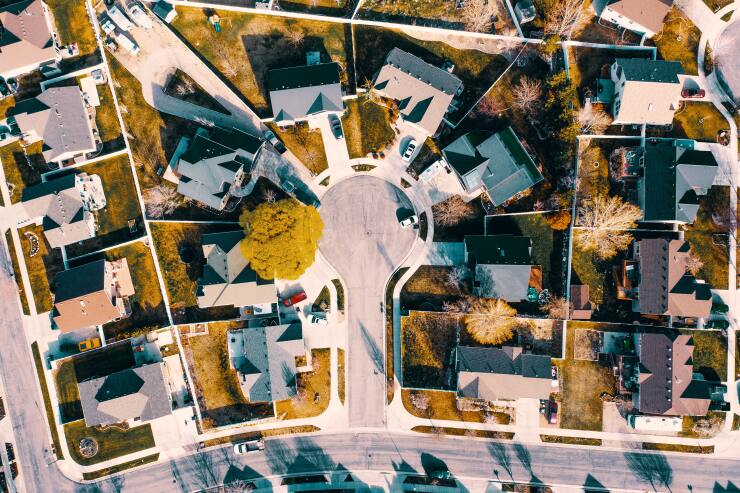Starwood Mortgage Residential Trust, 2022-4, is returning to the capital markets, in hopes of raising $357.3 million in mortgage-backed certificates secured by non-qualified mortgages that third party companies had originated.
A majority of the loans in the collateral pool, 54.5%, are non-QMs, while 45.5% are not subject to the Consumer Finance Protection Bureau’s (CFPB’s) Ability to Repay rules, according to Fitch Ratings.
The transaction, called Starwood Mortgage 2022-4, will issue certificates secured by mortgages originated mostly by Luxury Mortgage, HomeBridge Financial Services, and CrossCountry Mortgage. As for the rest of the pool, other originators contributed less than 10% each to the pool, according to Fitch.
Starwood Mortgage, 2022-4, has no LIBOR exposure, Fitch says, because the transaction is secured by fixed-rate loans and adjustable-rate loans benchmarked to the Secured Overnight Financing Rate (SOFR). As for how this dynamic will affect the notes and the capital structure, Fitch noted that the class A-1 certificates will be fixed-rate and be capped at the net weighted average coupon. They will also have a step-up feature.
Credit Suisse Securities is the lead underwriter on the deal, which will issue the securities through a senior-subordinate, sequential payment structure, the rating agency said.
Fitch intends to assign ratings ranging from ‘AAA’ on the $269.8 million, A-1 class to ‘B-’ on the $8.5 million, B-2 certificates, according to Fitch.
That sequential payment structure might turn out to be one of the deal’s saving graces, because a number of aspects of the deal either give Fitch pause for concern or are mixed, at best. For instance, the collateral consists of loans with non-prime credit quality, a more mixed outlook on the borrowers’ debt-to-income ratio, and some exposure to foreign nationals.
For one, the collateral consists of 15-year, 30-year and fixed-rate fully amortizing loans, which accounts for about 77.4% of the collateral in the deal. Fixed-rate loans with an initial interest-only term of account for 17.3% of the deal, while seven-to-one and ten-to-one adjustable-rate mortgages account for 5.4% of the deal. In aggregate, the deal has about four months of seasoning.
The Fitch-assessed debt-to-income ratio on the deal is higher than the DTI in the transaction documents of 31.2%. For its part, Fitch assumed a DTI of 55% for asset depletion loans and converting the debt service ratio to a DTI for the debt-servicer coverage ratio loans. Also, a majority of the loans are financing investor property or second homes, instead of primary residences.






